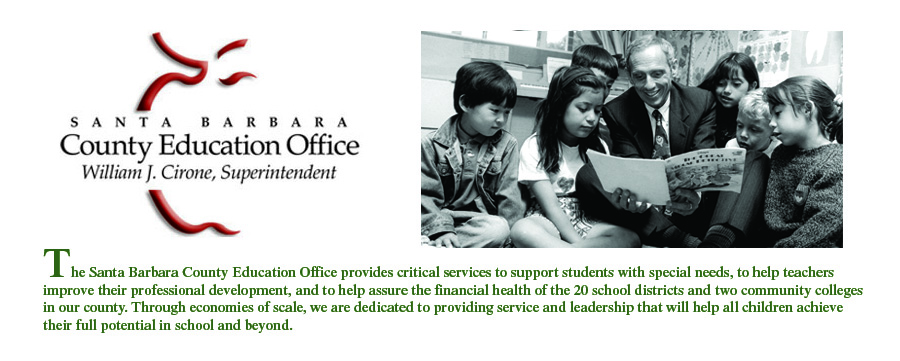August 28, 2013
By Bill Cirone, Santa Barbara County Superintendent of Schools
There is much to celebrate in the most recent Phi Delta Kappa/Gallup Poll, which has measured Americans’ attitudes toward public schools for the past 45 years.
A large majority of respondents continue to give their local schools high marks for overall performance, and that evaluation increases in direct proportion to the closeness of the respondent to a school. The 71 percent of parents who graded their own children’s schools with an A or a B was the highest percentage the poll has ever recorded.
Overwhelmingly, Americans say they trust their teachers and principals, and nearly 90 percent of parents feel their children are safe on campus — also the highest percentage ever.
As the longest-running survey of American attitudes toward education, the annual PDK/Gallup Poll provides extensive and trusted data about changes in Americans’ perceptions as well as their current views.
As in prior years, respondents in 2013 said the biggest challenge facing public schools is a lack of financial support. Responding to an open-ended question, not a fixed list of choices, Americans gave this answer more than four times as often as any other.
Other results included:
- Solid majorities of parents say that their children are healthier, more involved in their communities, have “substantially higher well-being,” and better relationships with their friends and family members because of the schools they attend.
- Majorities support alternatives such as public charter schools, home schooling in partnership with public schools, and some forms of self-paced learning and online education, but nearly 70 percent oppose public funding for students to attend private schools. That was the highest level of opposition in the survey’s history.
- Nearly 90 percent of respondents believe that activities such as band, drama, sports, and the student newspaper are important.
- A majority favors preschool programs for low-income children as a way to improve their academic performance as teenagers.
This year’s poll, conducted less than six months after the horrific fatal shootings at Sandy Hook Elementary School in Newtown, Conn., also asked numerous questions about safety and security. Among those findings were:
- Nearly 90 percent of parents felt their children were safe at school, far more than the number who said they were safe when playing in their own neighborhoods.
- To increase school safety, nearly twice as many parents favored additional funding for mental health services as those who wanted to hire more security guards.
- A majority said schools should use procedures to screen visitors that are similar to those used in government buildings. Respondents were ambivalent about whether schools should use armed guards, but a clear majority opposed having teachers and administrators carry weapons.
When asked a series of questions on what schools should teach, respondents said it was most important for students to learn critical-thinking and communication skills. After that, the public said students should learn how to set meaningful goals, and skills to increase collaboration, creativity, well-being, and character. This list of the public’s priorities matches up well with the new Common Core State Standards curriculum that California schools are adopting this year.
The report contains other interesting findings, but in summary they show clearly that Americans value their public schools and want them to be supported financially. It is particularly encouraging to see that parents give their children’s schools high marks for both educational effectiveness and safety, and that the public also favors our schools’ new academic emphasis on critical thinking and other skills that will better prepare our students for college and careers in the 21st century.
